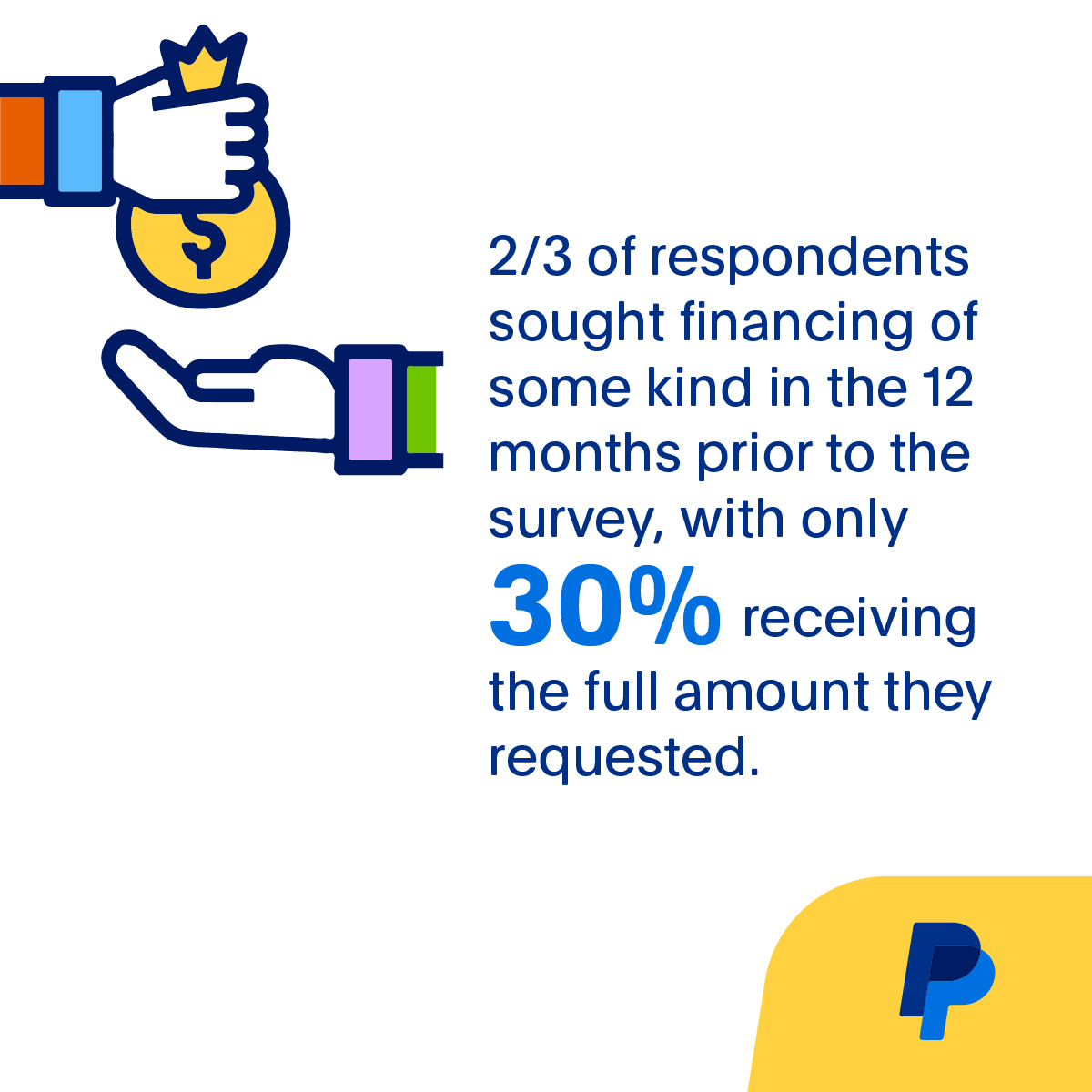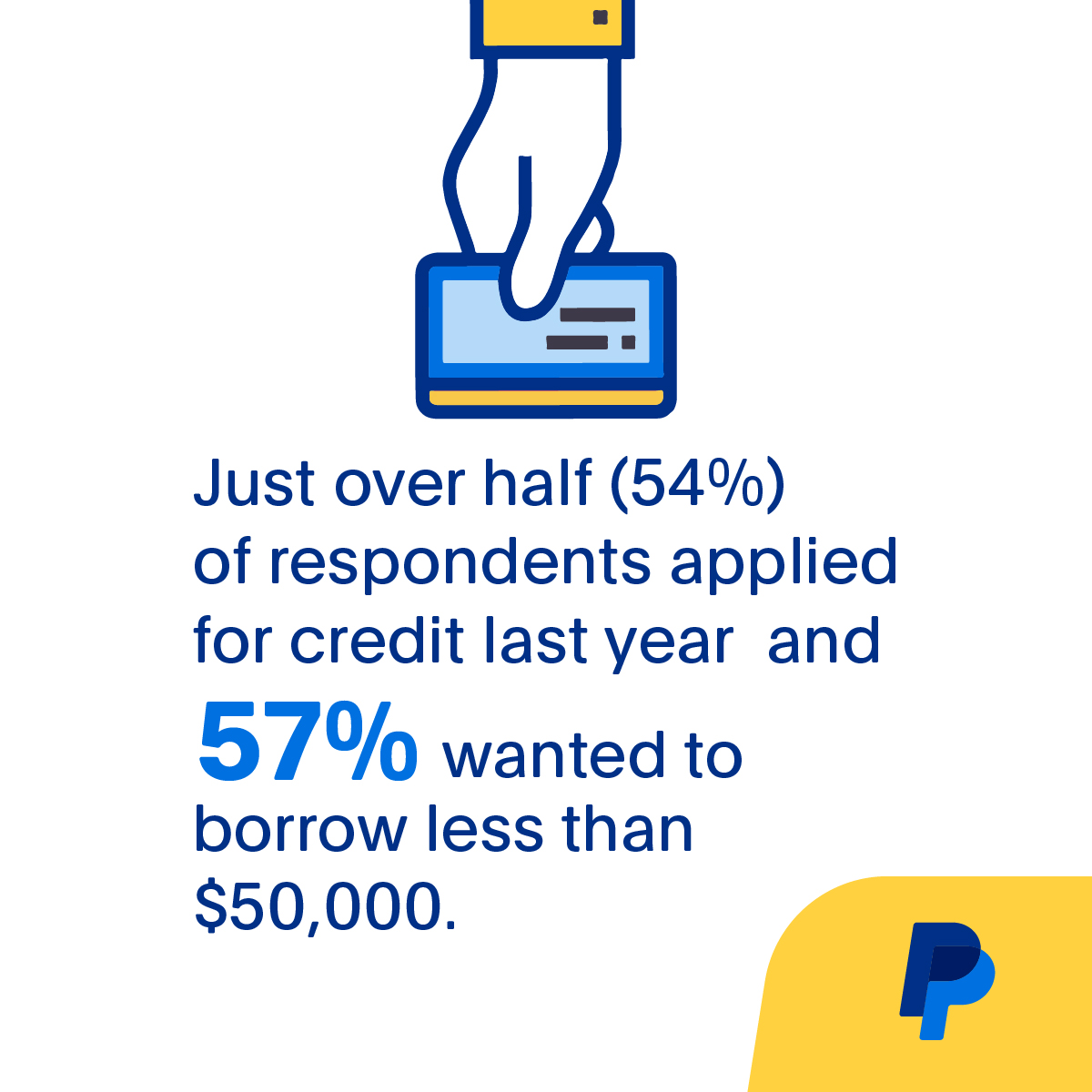By Tammy Halevy, Ron Busby, Sr., Rhett Buttle, Ramiro Cavazos, Chiling Tong and Paul Disselkoen
Amidst an extraordinary surge in entrepreneurial activity, small business owners of color face a precarious reality. The recent turmoil in the banking sector has caused credit markets to tighten, exacerbating liquidity issues often faced by entrepreneurs. A third of small business owners in our recent survey, including 58% of Black entrepreneurs and nearly 40% of Latino and Asian American and Pacific Islander (AAPI) entrepreneurs, worry they can’t handle a $5,000 unexpected expense—an alarming lack of confidence in their ability to access cash needed to keep their businesses operating, much less growing.
This stark finding comes from a recent survey of more than 1,000 diverse entrepreneurs who reflect the realities of Main Street business fielded by Reimagine Main Street in partnership with the US Black Chambers, Inc., the United States Hispanic Chamber of Commerce, and National Asian/Pacific Islander American Chamber of Commerce and Entrepreneurship (National ACE) with support from PayPal.

These doubts about available capital are rooted in real-world experiences. Two-thirds of respondents sought financing of some kind in the 12 months prior to the survey, with only 30% receiving the full amount they requested. The survey shows a striking lack of confidence among respondents in their ability to secure relatively small amounts of capital to finance common business needs and opportunities: investing in digital strategies and marketing campaigns, volume discounts on inventory purchases, increases in payroll, or acquisition of new property or equipment. This translates into missed chances for growth, innovation, and job creation—and unrealized economic growth for our country.
Small businesses form the backbone of our economy, employing approximately half of all Americans. When these business owners face obstacles in accessing capital to stock their shelves, hire employees, or pursue new contracts, the repercussions extend beyond each business to impact the people they employ, their communities, and the nation. Our economy depends heavily on the success and growth of small businesses.
To realize the underestimated potential of these entrepreneurs, we must find ways to get capital into their hands and their businesses. The survey data offers valuable insights into how we must meet the capital needs of diverse businesses—including reliance on trusted messengers, innovation in product design and delivery, and commitment to a robust marketplace of capital providers.
Some notable findings include:
- Owners are open to sharing data: More than half (58%) of respondents expressed willingness to share digital access to their financial data when applying for financing. While the pandemic accelerated the adoption of digital financial services, these results are especially notable because about two-thirds (67%) of respondents were over the age of 50. This willingness to share data holds promise for innovations in underwriting, speed of decision-making, and development of customized and accessible financing options. A more robust data-driven picture of a business can create alternatives to traditional credit scores, which can be biased against business owners of color.
- Priorities informing where business owners seek financing differ by race and ethnicity: In our survey, respondents ranked factors influencing their choice of financing source, revealing variations across racial and ethnic lines. Black business owners prioritized their confidence in application approval, while Latino business owners most valued swift responses. Meanwhile, both Asian American and Pacific Islander (AAPI) and white business owners rated low rates or "good pricing" as their prime criterion when deciding where to seek financing. These differences in priorities underscore the need for a broad range of options and transparency to help business owners make informed decisions about choices and tradeoffs that best meet their preferences and requirements.
- Entrepreneurs trust their peers most for advice: Business owners report they are most likely to turn to other business owners for counsel and guidance, unsurprisingly preferring those with similar experiences. This often involves engaging with structured networks such as Chambers of Commerce, industry groups, or other related affinity groups. Building on these trusted relationships in authentic and value-added ways is critical for reaching and serving business owners.
- Demand is high for small dollar amounts: Just over half (54%) of respondents applied for credit last year. Of these, the majority (85%) were seeking less than $250,000 and 57% wanted to borrow less than $50,000. Underwriting small-dollar loans is economically challenging for lenders without reliance on automation —emphasizing the crucial role digital financial services play in meeting the financing needs of entrepreneurs.

Responding to the opportunities and imperatives to bridge the capital access gap revealed by the survey requires a robust and dynamic ecosystem of products, services, and delivery channels. To get there, banks (including Minority Depository Institutions), fintechs, and Community Development Financial Institutions need to commit to cooperation and innovation that makes the most of their distinctive strengths, assets, and trusted relationships. Purposeful investment will lead to an array of products and services tailored to meet the unique needs, preferences, and constraints of small businesses and entrepreneurs.
With a steadfast dedication to meeting the needs of entrepreneurs of color, we can cultivate an ecosystem that nurtures success and paves the way for a more equitable and prosperous future for businesses on MLK Boulevards, Cesar Chavez Ways, Chinatowns and Main Streets across the United States.
Tammy Halevy is the Executive Director of Reimagine Main Street, a project of the Public Private Strategies Institute
Ron Busby, Jr. is CEO of the US Black Chambers, Inc.
Rhett Buttle is the Founder of Public Private Strategies and President of the Public Private Strategies Institute
Ramiro Cavazos is CEO of the United States Hispanic Chamber of Commerce
Chiling Tong is President and CEO of the National Asian/Pacific Islander American Chamber of Commerce and Entrepreneurship
Paul Disselkoen is Senior Associate for PayPal’s Public Affairs and Strategic Research team